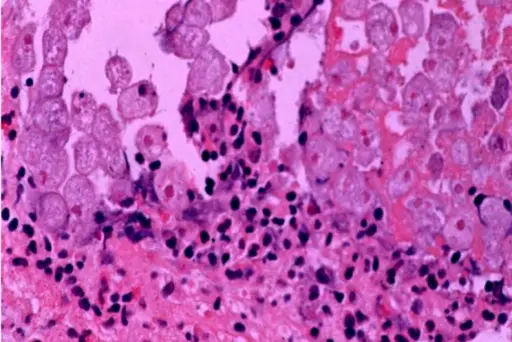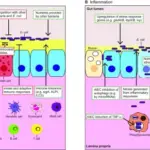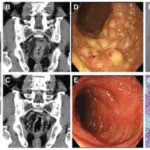Parasitic enterocolitis is an inflammation that occurs in a person’s digestive tract with parasites infections.
What is the Pathology of Parasitic Enterocolitis?
The pathology of parasitic enterocolitis is:
-Etiology: The cause of parasitic enterocolitis is Entamoeba histolytica which the most common cause of parasitic colitis.
-Genes involved: None.
-Pathogenesis: The sequence of events that lead to parasitic enterocolitis.
-Histology: The histology associated with parasitic enterocolitis shows.
How does Parasitic Enterocolitis Present?
Patients with parasitic enterocolitis typically all genders at any age. The symptoms, features, and clinical findings associated with parasitic enterocolitis include abdominal pain and bloating, bloody stools, dehydration, diarrhea, and fever.
How is Parasitic Enterocolitis Diagnosed?
Parasitic enterocolitis is diagnosed by fecal exam, endoscopy, colonoscopy, blood tests, X-ray, and MRI.
How is Parasitic Enterocolitis Treated?
Parasitic enterocolitis is treated by albendazole and mebendazole.
What is the Prognosis of Parasitic Enterocolitis?
The prognosis of parasitic enterocolitis is good because they could easily be treated and prevented.



